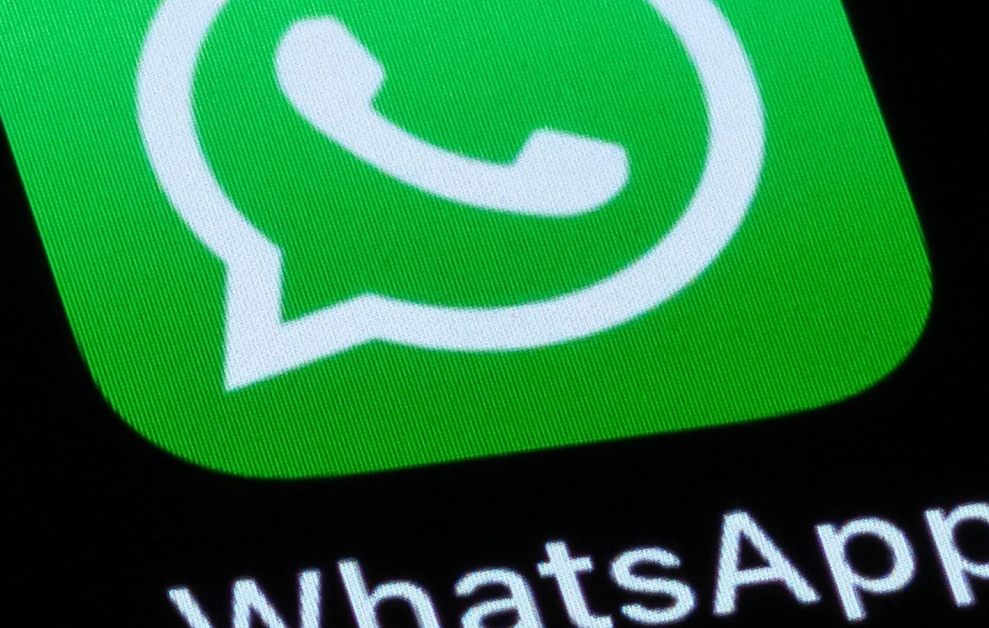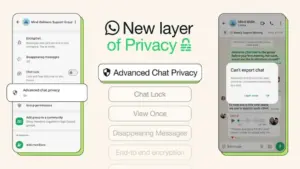This is one update iPhone users should avoid
This was always going to be a seminal year for messaging, with the headline act being Apple’s long-delayed adoption of RCS and its part-integration with iMessage. But there’s a much bigger change taking place, one with much more serious implications, and that’s especially true for millions of iPhone users on WhatsApp.
WhatsApp has had an uneasy relationship with its parent, Meta née Facebook, since the acquisition back in 2014. While the scale and depth of investment has catapulted WhatsApp into the world’s largest messenger, Meta’s itchy, data hungry fingers have sometimes strayed too far. This seriously rocked WhatsApp back in 2021, and we could be on the verge of something similar now.
But first let’s deal with iMessage and RCS. It’s widely expected that Apple will unveil the already confirmed change at this month’s WWDC. Let’s be very clear—there’s only one thing that matters when it comes to personal messaging—security.
As things stand, we don’t expect Apple and Google to collaborate on fully end-to-end encrypting the RCS bridge between iMessage and Google Messages just yet, despite both platforms having that level of security within their own walled gardens. Don’t even consider switching away from a secure platform until they do. You can take your pick from WhatsApp, Signal—even Facebook Messenger these days, all of which offer seamless cross platform, fully secured messaging. Don’t look elsewhere.
As I’ve reported before, WhatsApp is on a surge in Apple’s backyard, the US, which is the only place on the planet of any significance that still favors iMessage over WhatsApp. But that looks likely to change as WhatsApp’s network effect does its job. I don’t expect RCS to make a huge difference. WhatsApp is sticky and offers a single, unified interface across iOS and Android. It is also fully secured. Right now, all we expect from Apple is an SMS+ upgrade to its green bubbles. That’s not enough.
But it could be that Meta and Apple are about to give users a different reason to consider their messaging options—AI. And here Apple could have a trump card to play over Meta and WhatsApp that might prove hard for users to resist.
It’s Google that first opened the door to an AI chatbot / secure messenger integration. “You can chat with Gemini in the Google Messages app,” it has announced, “to draft messages, brainstorm ideas, plan events or simply have a fun conversation.”
The introduction of Gemini, its complex privacy policies and its new what’s-encrypted-and-what-isn’t AI layer on messaging is worrying. I can see the simplicity and user interest in a ready made prompt UI. But the risk is that it undermines the end-to-end enclave nature of a messaging platform, tunneling directly into Google’s cloud, to say nothing of the on-device/off-device confusion around features such as automated replies and contextualized summaries that might follow.
We don’t yet know exactly what Apple will announce on AI at WWDC, but we do know it is likely to emphasize the on-device nature of anything sensitive that works on user data or captures potentially private prompts. Apple’s hope—and it’s a huge punt—is that it can jump on the smartphone AI bandwagon while maintaining its privacy and security differentiation. Samsung has tried with its hybrid AI, but that’s just as confusing in many ways as Android’s own offerings. Apple needs to do better.
Will there be an AI prompt within iMessage? Will this be Apple’s own on-device model or a tunnel out to ChatGPT or similar? We don’t know. The answers, though, are critical, and whatever is done will need to be draped in Apple’s reputation for security, privacy and the sanctity of user data.
Not much of which can be said for Meta, given that its business model is built on data mining, analysis and exploitation. And so, Meta’s fairly quiet introduction of its own “ask Meta” AI tunnel out of WhatsApp could be a huge issue in the making.
There are two problems here for WhatsApp, especially where its iPhone users are concerned. First, just the basics around how users assure the safety of end-to-end encryption when there’s a Meta cloud outreach built into the same UI. No-one has yet done a good job of simple, clear front and center privacy polices that explain to users as they interact with a UI exactly what’s being done with their data.
The usual response to pointing out that Gemini on Google Messages or Ask Meta on WhatsApp are not end-to-end encrypted has been that you can’t end-to-end encrypt a chat between a user and Google’s or Meta’s clouds. And while that’s true, because the end-to-end in end-to-end refers to two devices, the sender and receiver, if the AI is on-device only, then that’s the same as end-to-end encryption.
Google is clear on your risks—so let’s make this stupidly simple. “Google collects your Gemini Apps conversations, related product usage information, info about your location and your feedback. Google uses this data, consistent with our Privacy Policy, to provide, improve and develop Google products and services and machine learning technologies, including Google’s enterprise products.”
Meta assures that prompts are not connected to user profiles, but also says that “when you tap a search suggestion, send, or enter on your keyboard, you’ll be asked to acknowledge the Meta AI Terms of Service only if you’ve never interacted with Meta AI. You’ll then be taken to a chat with Meta AI to continue the interaction. Once you start a chat with Meta AI, Meta may use your AI messages to improve AI quality.”
This leads us to the second issue, which is subtler but potentially more critical for WhatsApp. Apple is about to promote its AI differentiation across its user base. And you can bet the words security and privacy will be stitched throughout. Meta has a different reputation and a track record of clashing with Apple. I don’t think a blatant level of Meta integration within WhatsApp is going to do the messenger any favors. It’s a huge mistake, and one that needs some reflection before it rolls out widely.
If Meta and WhatsApp do feel the need to follow Google’s example and bring an AI chatbot UI into the platform, they need to take a market lead for the safety, clarity and transparency of doing so. Parallel, negative headlines on the complexity of Meta’s AI data capture and training and the difficulties in opt-outs won’t do the brand association any good at all for WhatsApp—not sitting right within the app.
Meta’s disadvantage is that it doesn’t have device and/or OS control in the way that Apple and Google do, and that means its options are much more limited. Apple can push this to its advantage if it does adopt a chatbot UI in iMessage. It’s hard to see how Meta/WhatsApp can compete while maintaining their enclave.
All of which risks dismantling the campaign I expected to see from WhatsApp following WWDC, highlighting its security and privacy advantages over iMessage and its restricted RCS deployment. What happens next will be fascinating…



